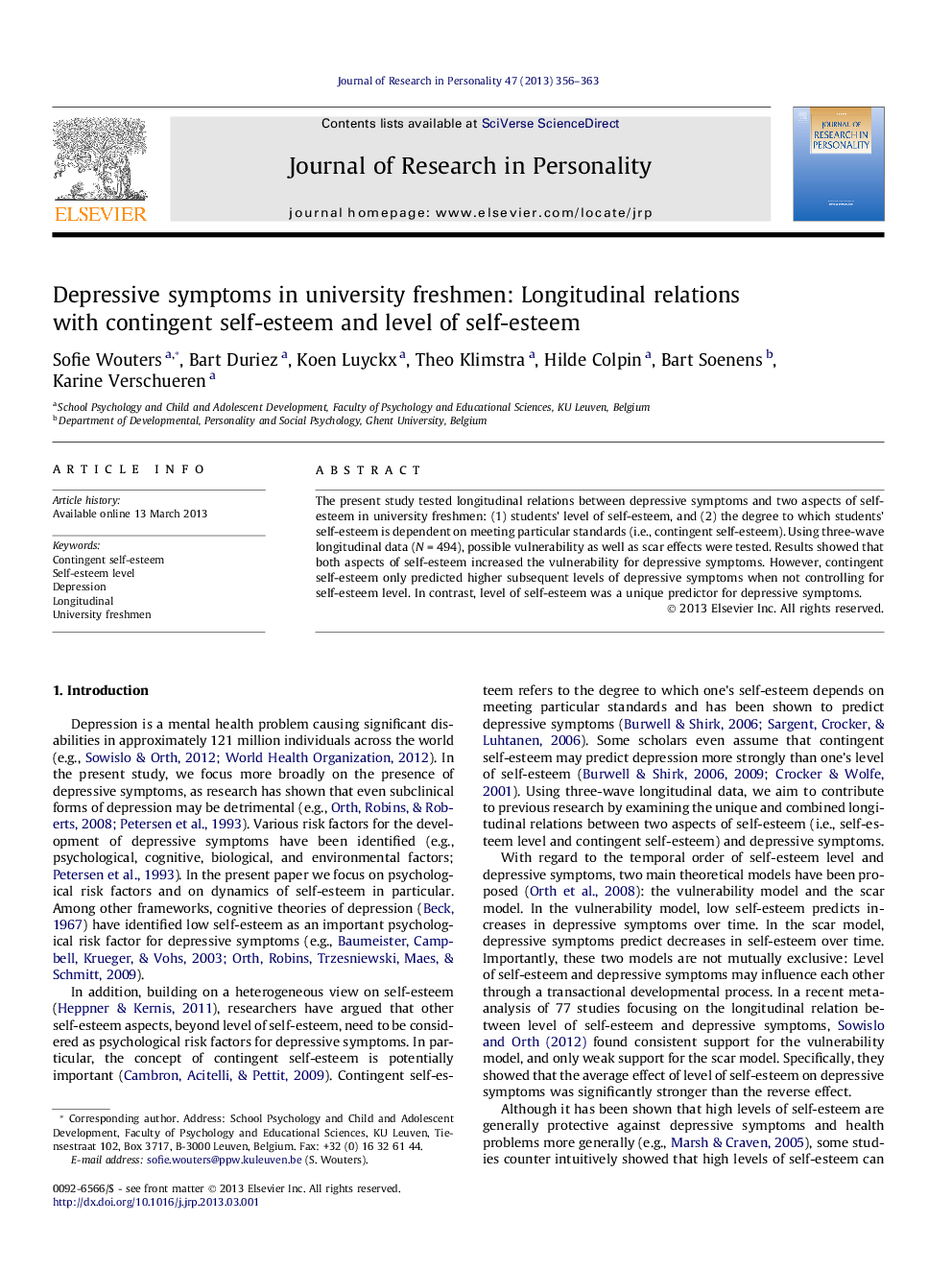| Article ID | Journal | Published Year | Pages | File Type |
|---|---|---|---|---|
| 10471122 | Journal of Research in Personality | 2013 | 8 Pages |
Abstract
The present study tested longitudinal relations between depressive symptoms and two aspects of self-esteem in university freshmen: (1) students' level of self-esteem, and (2) the degree to which students' self-esteem is dependent on meeting particular standards (i.e., contingent self-esteem). Using three-wave longitudinal data (NÂ =Â 494), possible vulnerability as well as scar effects were tested. Results showed that both aspects of self-esteem increased the vulnerability for depressive symptoms. However, contingent self-esteem only predicted higher subsequent levels of depressive symptoms when not controlling for self-esteem level. In contrast, level of self-esteem was a unique predictor for depressive symptoms.
Related Topics
Life Sciences
Neuroscience
Behavioral Neuroscience
Authors
Sofie Wouters, Bart Duriez, Koen Luyckx, Theo Klimstra, Hilde Colpin, Bart Soenens, Karine Verschueren,
